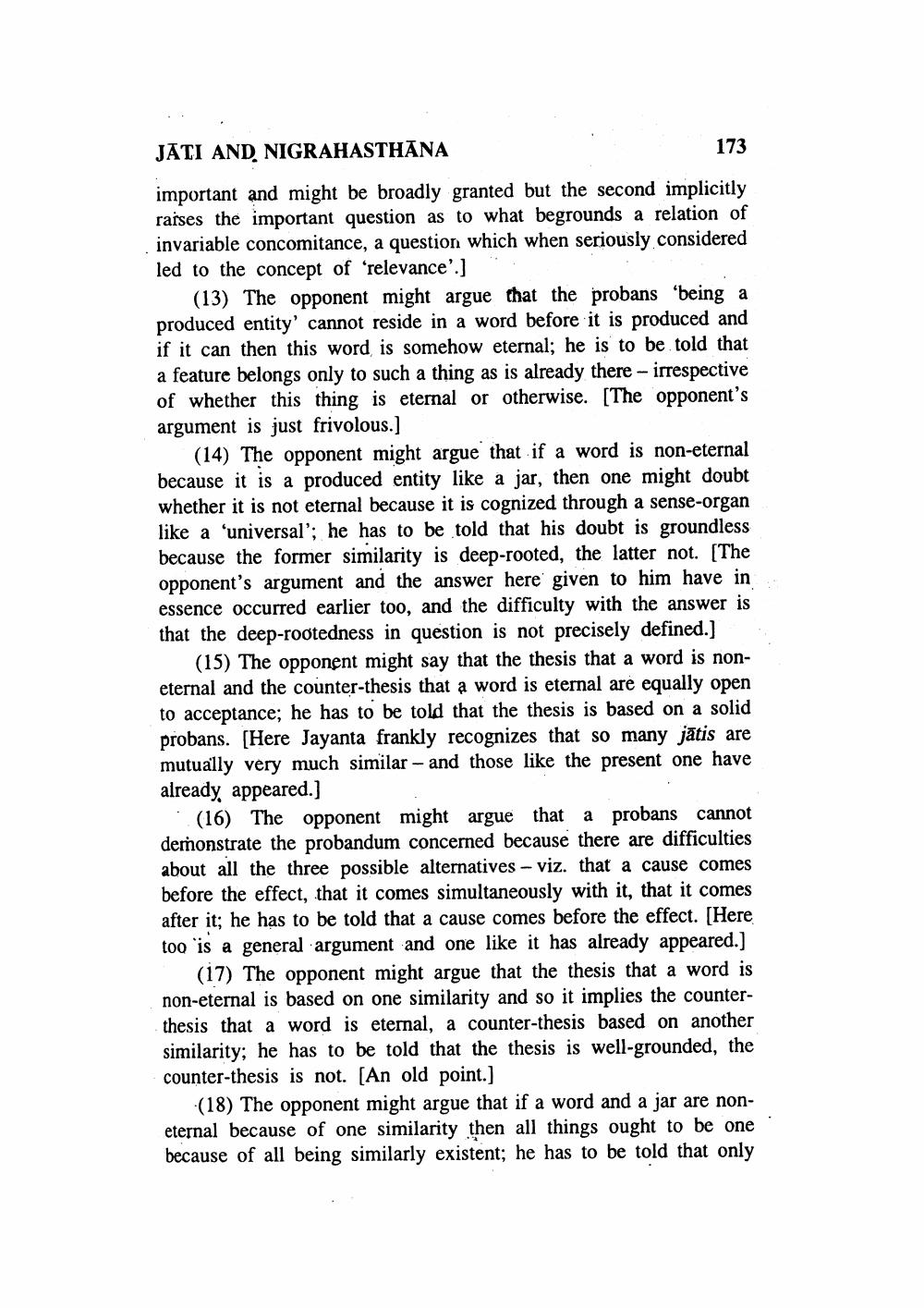________________
JĀTI AND NIGRAHASTHANA
173
important and might be broadly granted but the second implicitly raises the important question as to what begrounds a relation of invariable concomitance, a question which when seriously considered led to the concept of "relevance'.) .
(13) The opponent might argue that the probans 'being a produced entity' cannot reside in a word before it is produced and if it can then this word is somehow eternal; he is to be told that a feature belongs only to such a thing as is already there - irrespective of whether this thing is eternal or otherwise. [The opponent's argument is just frivolous.]
(14) The opponent might argue that if a word is non-eternal because it is a produced entity like a jar, then one might doubt whether it is not eternal because it is cognized through a sense-organ like a 'universal'; he has to be told that his doubt is groundless because the former similarity is deep-rooted, the latter not. (The opponent's argument and the answer here given to him have in essence occurred earlier too, and the difficulty with the answer is that the deep-rootedness in question is not precisely defined.)
(15) The opponent might say that the thesis that a word is noneternal and the counter-thesis that a word is eternal are equally open to acceptance; he has to be told that the thesis is based on a solid probans. (Here Jayanta frankly recognizes that so many jātis are mutually very much similar - and those like the present one have already appeared.)
(16) The opponent might argue that a probans cannot demonstrate the probandum concerned because there are difficulties about all the three possible alternatives - viz. that a cause comes before the effect, that it comes simultaneously with it, that it comes after it; he has to be told that a cause comes before the effect. [Here too is a general argument and one like it has already appeared.)
(17) The opponent might argue that the thesis that a word is non-eternal is based on one similarity and so it implies the counterthesis that a word is eternal, a counter-thesis based on another similarity; he has to be told that the thesis is well-grounded, the counter-thesis is not. (An old point.)
(18) The opponent might argue that if a word and a jar are noneternal because of one similarity then all things ought to be one because of all being similarly existent; he has to be told that only




